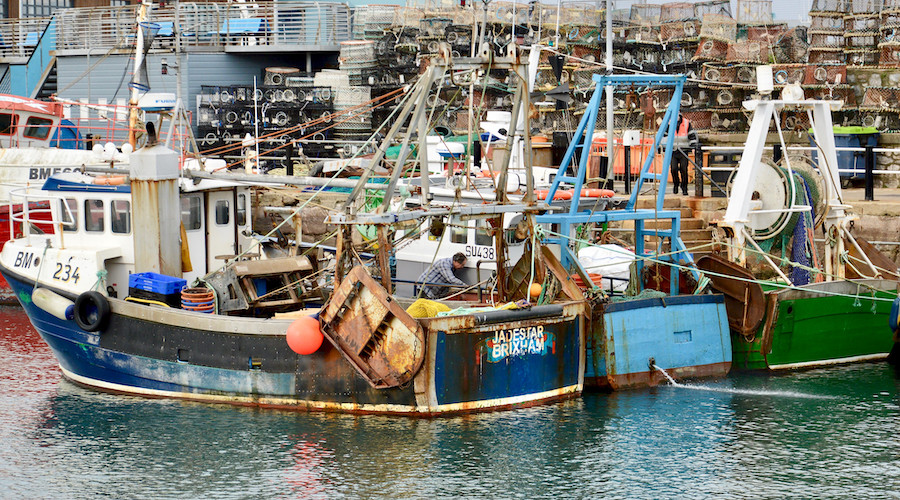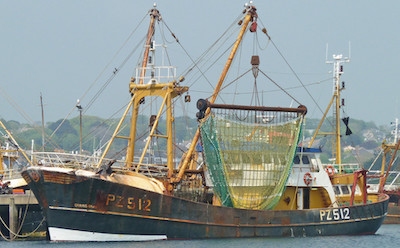
Fishing boats in Brixham harbour, UK. Photo by Dave_S, Flickr.
The United Kingdom has a unique opportunity to start rebuilding its fish stocks by taking advantage of the slowdown in commercial fishing caused by the COVID-19 pandemic and ongoing Brexit negotiations that should lead to new policy and legislation.
A new paper by researchers with the University of Southampton, the GEOMAR Helmholtz Centre for Ocean Research and the Sea Around Us initiative at the University of British Columbia presents a science-based pathway for decision-makers to develop a holistic approach in fisheries management by harnessing the present moment in which threatened stocks are seeing fishing pressure reduced to levels not seen since World War II.
“Several stocks targeted by UK fishers are in a degraded and precarious state. In fact, of those for which there is data available, 37 per cent were set to be overfished just this year,” said Paul S. Kemp, lead author of the study and a researcher at the University of Southampton. “One of the reasons for this is that fishing quotas – or how much of each species can be caught in a certain area by each country – are set by the EU at levels higher than those that would enable the recovery of the populations.”
To regulate the ongoing extraction beyond sustainable limits, the researchers propose fishing targets be set to levels in which fishers leave more fish in the water than the minimum required to generate maximum sustainable yields.

Penzance, England. Photo by Tim Green, Flickr.
“Maximum Sustainable Yield or MSY is defined as the highest catch that can be continuously taken from a stock under existing environmental conditions,” said Rainer Froese, co-author of the study and senior scientist at GEOMAR. “Smart fisheries management, such as applied in Australia, aims for a little less than MSY. That reduces the risk of unintentional overfishing and ensures close to maximum catches, year after year.”
Daniel Pauly, co-author of the study and principal investigator of the Sea Around Us initiative at the UBC’s Institute for the Oceans and Fisheries said this proposal will allow fish populations to recover to levels that are higher than those that can produce MSY.
“This will ensure large and diverse populations that will be better prepared for climate change, stabilize ecosystems, and at the same time maximize fishers’ profits,” Pauly said. “The opportunity to do this is now because with the slowdown caused by COVID-19 and after Brexit, the UK will be in a position to insist in its negotiations with the EU that fishing quotas advised by scientists not be exceeded.”
As an additional safeguard for sustainable and highly profitable fishing in the post-Brexit and post-COVID-19 world, the researchers propose the creation of a “blue belt” of Marine Protected Areas around the UK coast.
“The establishment of MPAs is one of the most cost-effective ways to restore overexploited stocks and habitats on which fish depend, to the mutual benefit of the fishing industry who experience increased catches in grounds immediately outside of MPAs,” Pauly said.
The researchers believe MPAs may also be a way to bring together the United Kingdom itself and neighbouring countries over a common cause, as Brexit may cause disputes related to access to the English Channel and the North Sea.
“It is likely that a policy that limits access to critical fish habitats to all, as a means to benefit the wider community through the recovery of fish stocks, will be more likely to garner support,” Kemp said.
The paper “COVID-19 provides an opportunity to advance a sustainable UK Fisheries Policy in a post-Brexit brave new world” was published in Marine Policy https://doi.org/10.1016/j.marpol.2020.104114

